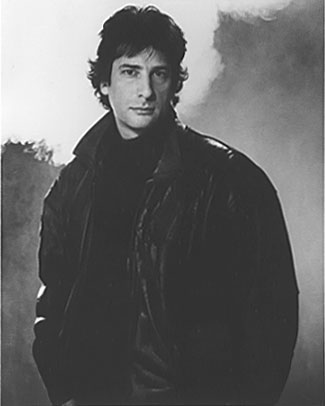Two Plays for Voices: Neil Gaiman
The sound-play is a way station between fiction and drama. It's like a reading, but performed by a full cast of actors rather than the author or a single voice. Neil Gaiman's "Two Plays for Voices" are on Harper Audio.

The following review of Minneapolis writer Neil Gaiman’s sound-plays appears in the Winter 2002/2003 issue of Rain Taxi Review of Books, and is reprinted here by permission. Rain Taxi is an Alternative Press Award-winning quarterly based in Minnesota. Visit their website at www.raintaxi.com.
All who listened spellbound to radio plays before the advent of television (and those who still do) know the power of the sound-play form. Not surprisingly, Neil Gaiman proves himself adept at the sound play’s mixed nature. The author of comics (cult favorite The Sandman, of course, but also more realistic works such as Signal to Noise and fairy tales such as Stardust), prose (American Gods), and children’s books (most recently Coraline), Gaiman has also scripted a BBC television series, Neverwhere, which he later turned into a novel. He’s often converted works from one format to another, perhaps one reason his Two Plays for Voices is so successful.
The two plays here, Snow Glass Apples and Murder Mysteries, both began their lives as short stories (they appear in his collection Smoke and Mirrors). Murder Mysteries was also released as a graphic novel, with exquisite visuals by P. Craig Russell. As Gaiman reveals in the liner notes to Two Plays, this was his first choice for radio play format; the story within a story format is irresistible.
As the British narrator of Murder Mysteries tells us his story–a laconic tale of being stranded in L.A. and deciding to pay a visit to an old friend–he is interrupted and stops his story. Nothing much seems to have happened. But when a stranger on the street offers him a story in exchange for a cigarette, it’s a whopper. The stranger, played by Brian Dennehy, claims to be Raguel, an angel once charged with exacting the Lord’s vengeance. He relates to our narrator the story of the first crime, the murder of an angel named Carasel, before the universe was fully created.
Gaiman’s description of this pre-time heaven, a Silver City surrounded by “the dark,” is riveting, as is his conceit that the angels are working on a prototype of “the universe”–inventing giraffes, love, the color green, etc., all to please a creator they never see. It’s while working on the concept of death that Carasel is killed, and Raguel sent to discover the perpetrator. Dennehy shines in the role of Raguel, playing him as a hard-bitten detective who’s learned too much in the course of his investigation. And the mysteries are many: aside from the whodunnit, there is the conundrum of murder itself, and why Raguel should be telling this story to our narrator, whose own story contains mysteries of its own.
Snow Glass Apples is a shorter, more fabulist work, but just as compelling in a different way: this a fairy tale/horror hybrid braids the narrative into a winding thing of beauty, layering intrigue upon intrigue. Bebe Neuwirth is spellbinding as the witchy Queen of a medieval kingdom afflicted with a dark secret, whose final, intertextual twist is not revealed until the end. Although the narrative’s tropes of sexuality get a bit weakened by the repetition of the phrase “his manhood,” Snow Glass Apples never fails to enrapture the listener.
While these are plays for voices, producer Brian Smith and sound designer John Colucci have made them sonic experiences as well. Nearly every moment is filled with sound, the lighting of a match or the beating of angel wings or music. Though generally well-conceived, this music occasionally verges on cliché: the staccato atonal piano accompaniment to Murder Mysteries–narrator’s amnesiac wandering, for example. These studio savants might have occasionally respected the power of silence, and of the riveting performances their actors were capable of delivering sans any background. Still, their sound work is always smart and seamless, and improves more than it detracts from the theater these discs offer.
In his liner notes Neil Gaiman writes, “I love audio drama. The pictures in your head are better. I hope, before I die, I do some more.” Those who listen to his Two Plays for Voices will be quick to second that.